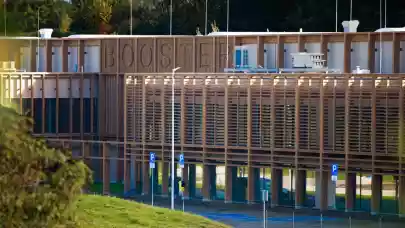
According to Savills latest research using Pitchbook data, €13.2bn of venture capital (VC) was raised by European headquartered life science companies between 2014 and 2018, resulting in over 650,000 sqm of office and lab deals across selected European life science markets between 2016 and 2020. Biotechnology and nanotechnology industries are also developing rapidly in Poland.
Savills calculates that every €1bn of VC investment creates 46,000 sqm of life science real estate demand. Rolling this forward, the €10.2bn of capital invested during 2019 and 2020 indicates that approximately 474,000 sqm of new requirements from the life sciences sector will emerge between now and 2022.
New office space supply of 5.2m sqm, which is distributed across 24 markets in Europe, is due to be completed this year, with a similar amount of supply (5.1m sqm) due in 2022.
However, Savills predicts that with half of this space already committed - 54% of new offices in 2021 already pre-let and 39% in 2022 - the life science industry will be competing with other occupiers for the best space in the right places, making it crucial for the sector to plan ahead and secure space as soon as possible.
Mike Barnes, Associate, Savills European Research, comments: “Global pharmaceutical companies are now increasingly expanding into Europe due to attractive tax incentives and access to talent. Over €100bn was invested as R&D spend in 2019 with over €33bn in the UK through the likes of GSK and AstraZeneca, €30bn in Switzerland including Roche, Takeda and Novartis and €12bn in France including Abbvie, Sanofi and Servier. As well as access to talent, global occupiers focus on the cost of their workforce for their operations. Comparing the average cost of employing a life scientist worldwide, most major European countries, including the UK, provide a discount to many of the established US cities.”
Christina Sigliano, Savills EMEA Head of Occupier Services, says: “Of course, life sciences occupier demand is not dictated by VC investment alone, as higher value government initiatives and private equity/M&A activity contribute to a number of large-scale occupier deals. Life science occupier requirements vary to a large degree depending on the R&D success rate, making it vital for occupiers to have flexibility and growth options.”
George Coleman, Associate, Savills Regional Investment Advisory EMEA, adds: “Hotly contested open market opportunities will encourage investors to consider off-market sale and leaseback transaction structures to gain exposure to the life sciences sector at more attractive yields. The specialised configuration of the real estate and covenant issues have previously dissuaded investors from committing to the sector, however we believe these barriers to entry will be lowered as education surrounding the industry improves. On the other side of the table, sale and leaseback transactions offer life science companies the opportunity to raise capital for their operations and invest in primary business areas.”
Pharmaceutical companies operating in Poland, usually own the production facilities or laboratories in which they operate. The exceptions are mainly represented by the company’s main offices, back offices or financial services centres, which are located in the different office buildings. According to Savills data, during the last five years, the annual take-up of pharmaceutical/life science companies in Poland was at the average level of 76,300 sqm per annum, with the largest volume recorded in 2016 (91,600 sqm).
Wioleta Wojtczak, Head of Research, Savills Poland, says: “Poland is now home to the sixth largest pharmaceutical industry in Europe. The Covid-19 pandemic has further accelerated the growth of this sector. Biotechnology and nanotechnology are currently the most rapidly developing industries that continue to support occupier demand across Poland.”



